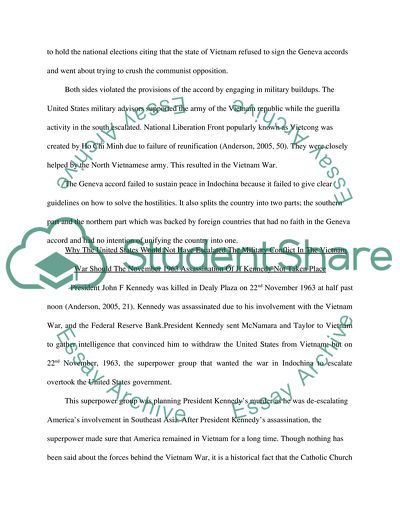Cite this document
(“Vietnam: Why The Geneva Accords Failed To Sustain Peace In Indochina Research Paper”, n.d.)
Retrieved from https://studentshare.org/history/1620115-history-research-paper-writer-pick-a-topic
Retrieved from https://studentshare.org/history/1620115-history-research-paper-writer-pick-a-topic
(Vietnam: Why The Geneva Accords Failed To Sustain Peace In Indochina Research Paper)
https://studentshare.org/history/1620115-history-research-paper-writer-pick-a-topic.
https://studentshare.org/history/1620115-history-research-paper-writer-pick-a-topic.
“Vietnam: Why The Geneva Accords Failed To Sustain Peace In Indochina Research Paper”, n.d. https://studentshare.org/history/1620115-history-research-paper-writer-pick-a-topic.


